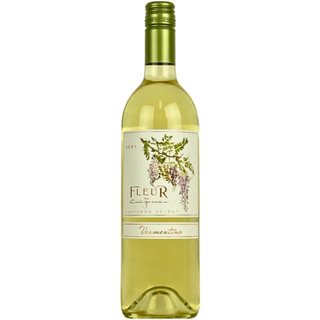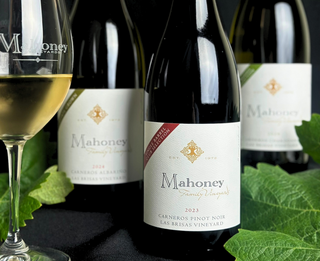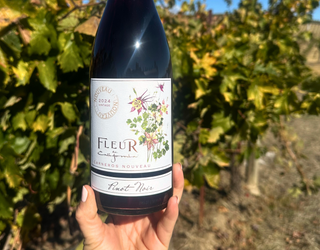Vermentino is a white grape believed to originate from the Iberian Peninsula (There are many different origin stories focusing on Spain or Portugal).
Many ampelographers believe Vermentino has been cultivated in Sardinia since the 13th century. Liguria and Corsica are also prime growing regions for this varietal, as well as the south of France (Provence and Roussillon especially) where it is sometimes known as Rolle. Also known as Pigato, Favorita, and dozens of other names, this grape is popular in parts of Italy and France, but is currently only planted in a handful of US vineyards. It has large golden/bronze clusters that can weigh up to two pounds, and if you aren't careful it can carry over 10 tons per acre of crop, even in a cooler coastal vineyard.

Due to the steep cliffsides in the Cinque Terre, Vermentino is harvested by monorail (pictured above) and is done in only 2-3 days. This system was developed in the 1970s, and has made harvesting these local grapes much easier. The monorails span 16 km, and connect the vines to the coast. What a beautiful view!
Planting in Los Carneros
We began planting Vermentino at Las Brisas Vineyard in 2000, and found it to be beautifully suited to Carneros. At that time, we believe it was the first planting of Vermentino on the North Coast of California. The conditions at Las Brisas are characterized by foggy mornings and windy afternoons, both of which slow the ripening process. While we get warm temperatures during the day, the nights are quite cool, and this is essential for preserving acidity in the grapes. Currently we have about 10 acres in total, mostly at Las Brisas.
Our Vermentino is fermented in stainless steel, accentuating bright citrus aromas with pronounced flavors of nectarine and delicate floral notes of honeysuckle and jasmine, finishing with a touch of minerality. This is a summertime must-have for the staff and family of Mahoney Vineyards, as well as a perfect companion for cracked crab, lobster rolls, or any seafood. This complex and crisp wine is the perfect replacement for Sauvignon Blanc, and would be a great addition to any summertime meal.

Vermentino Cluster
Facts about Vermentino
- Vermentino is little known in the US, so we wanted to share some interesting tidbits about this fan favorite.
- It’s the secret ingredient to the region of Provence’s top-rated Rosé.
- Nearly half of all Vermentino is grown in Sardinia.
- Only 2% of the worlds Vermentino is grown in the United States, with almost all of it grown in California
- According to the California Grape Acreage Report, only 129 acres of this grape are grown in our state, with only 4 acres in all of Napa County (almost all ours)!
- Often considered a warm climate variety. In somewhat cooler regions like ours, it delivers a more delicate, citrus character, while warmer sites yield more ripe peach and less crisp acidity.
Cinque Terre, within Liguria, Italy.
If you are really curious about Vermentino, below are more links that go deep into the history of this stunning grape.
Vermentino: Primary and secondary characterization of a Vermentino grape clones collection by Giovanni Nieddu
Vermentino of Sardegna: the holy grail of white wines and
Vermentino Informations about "Vermentino" in wein.plus Magazine






